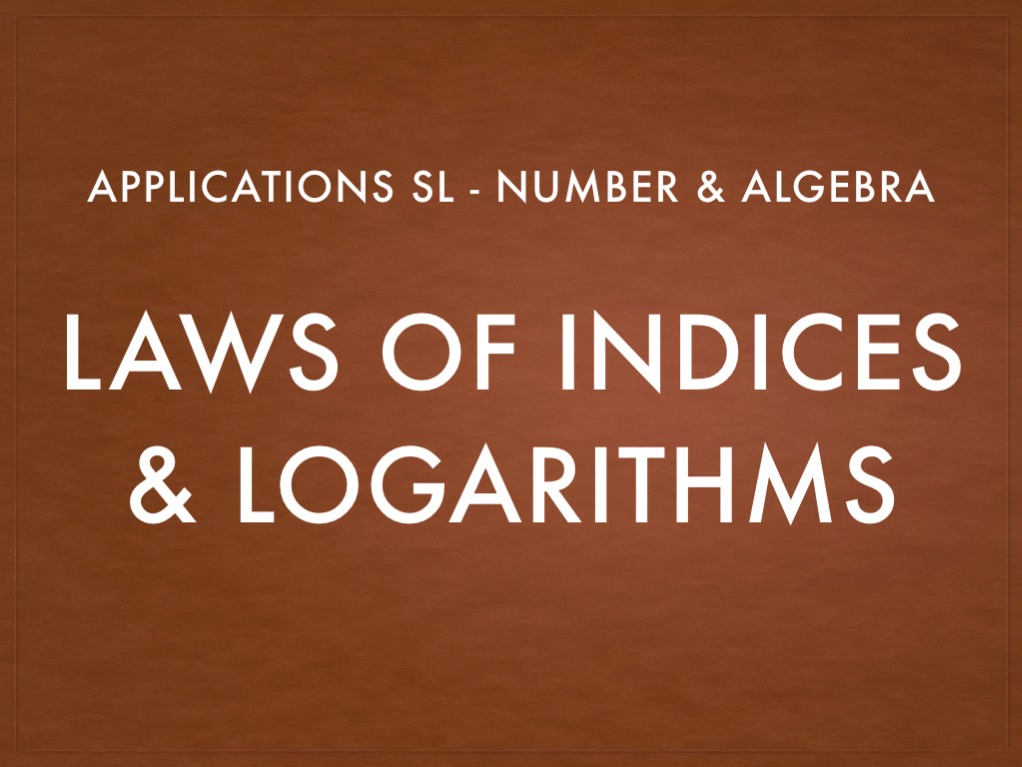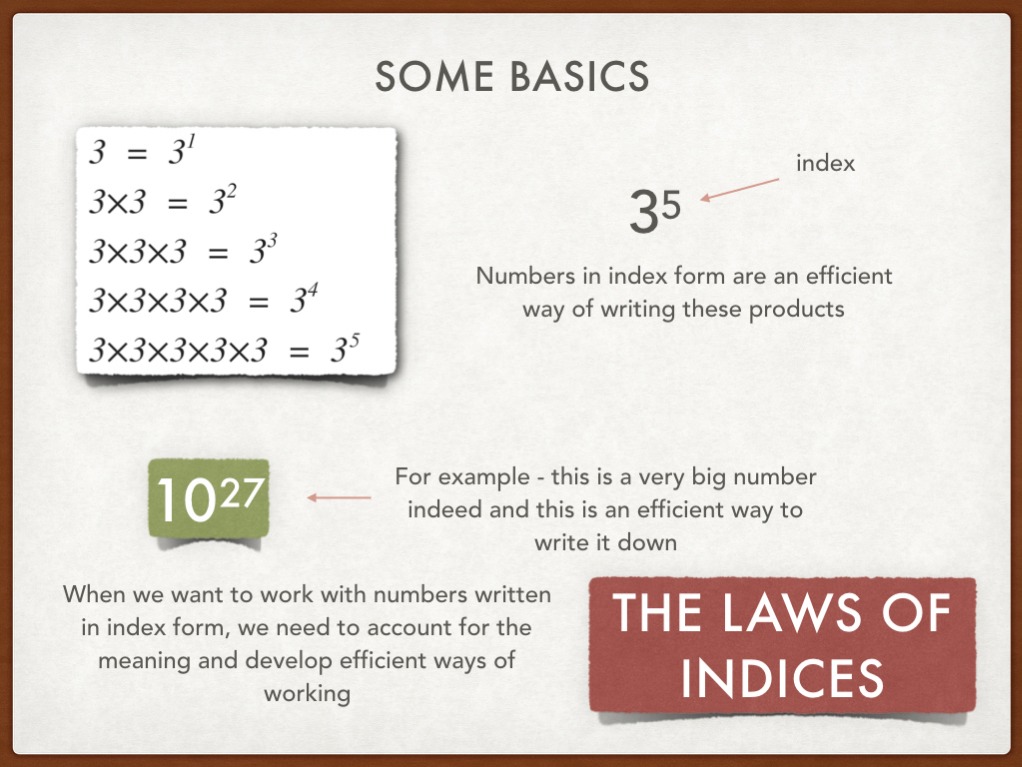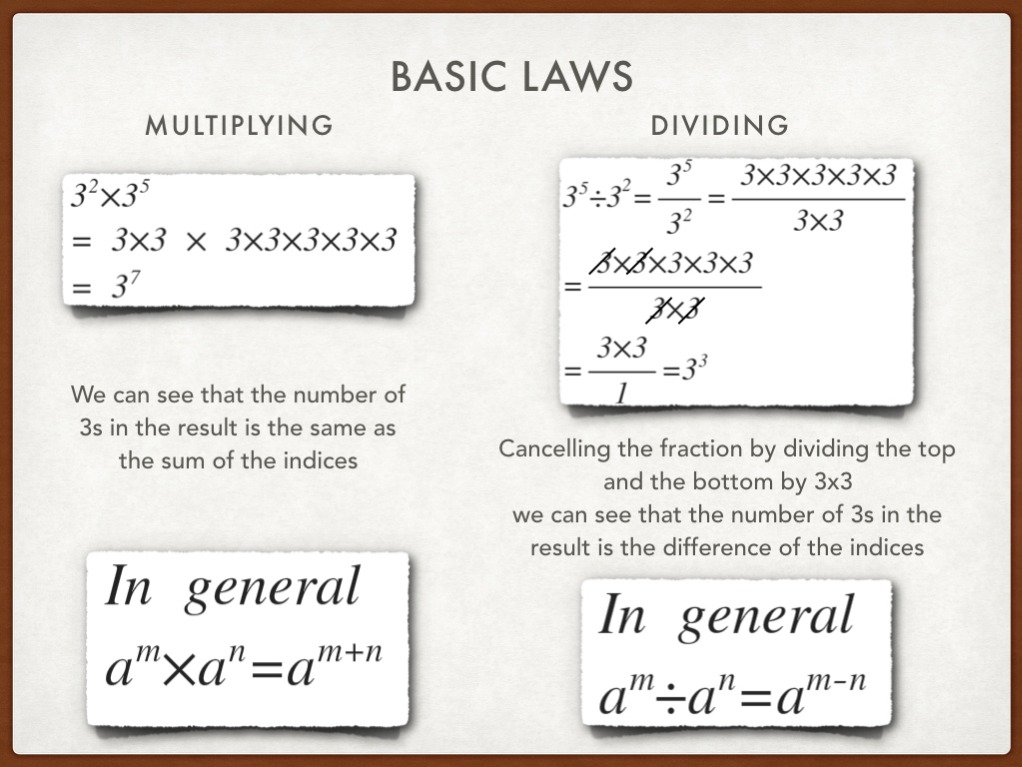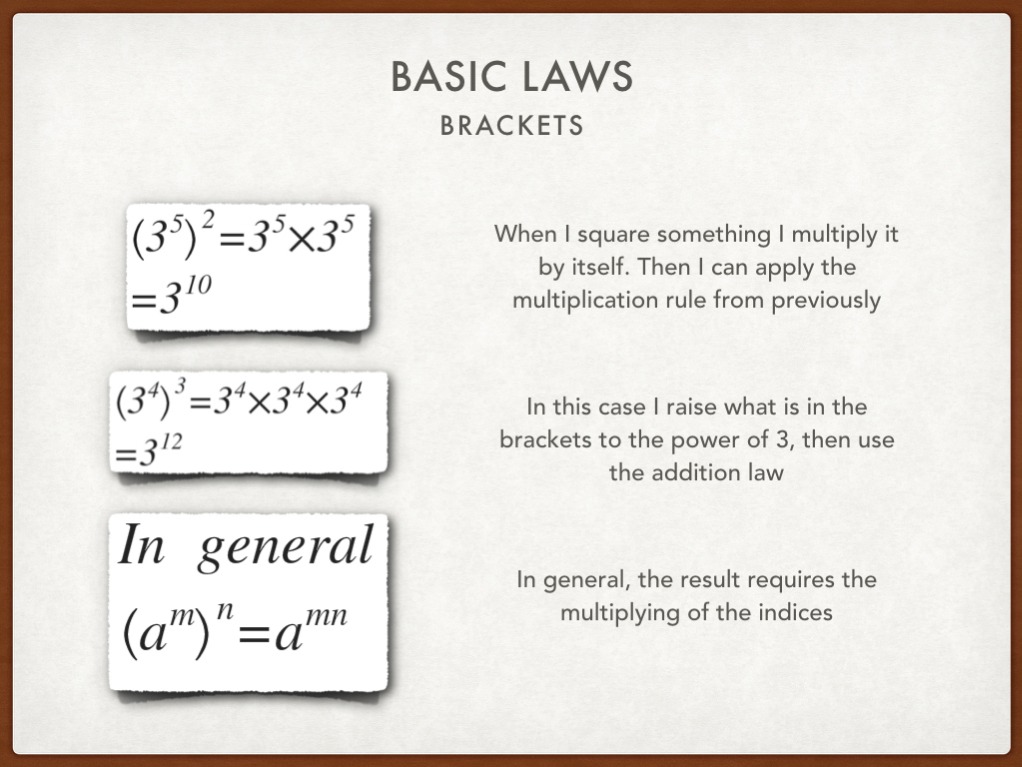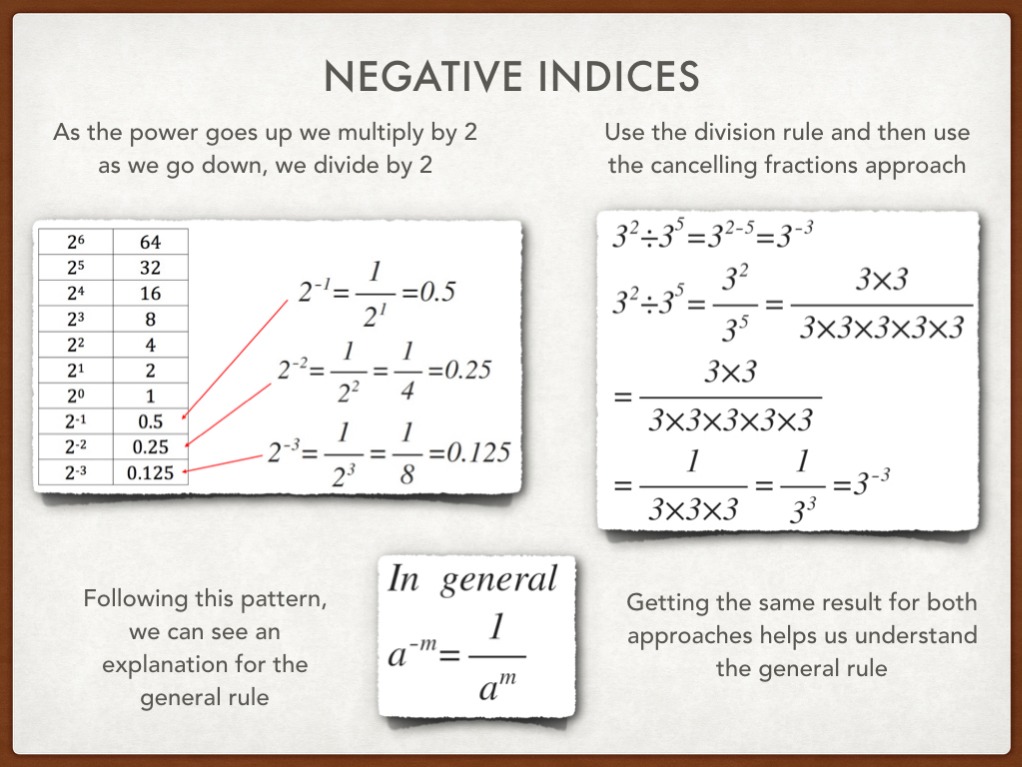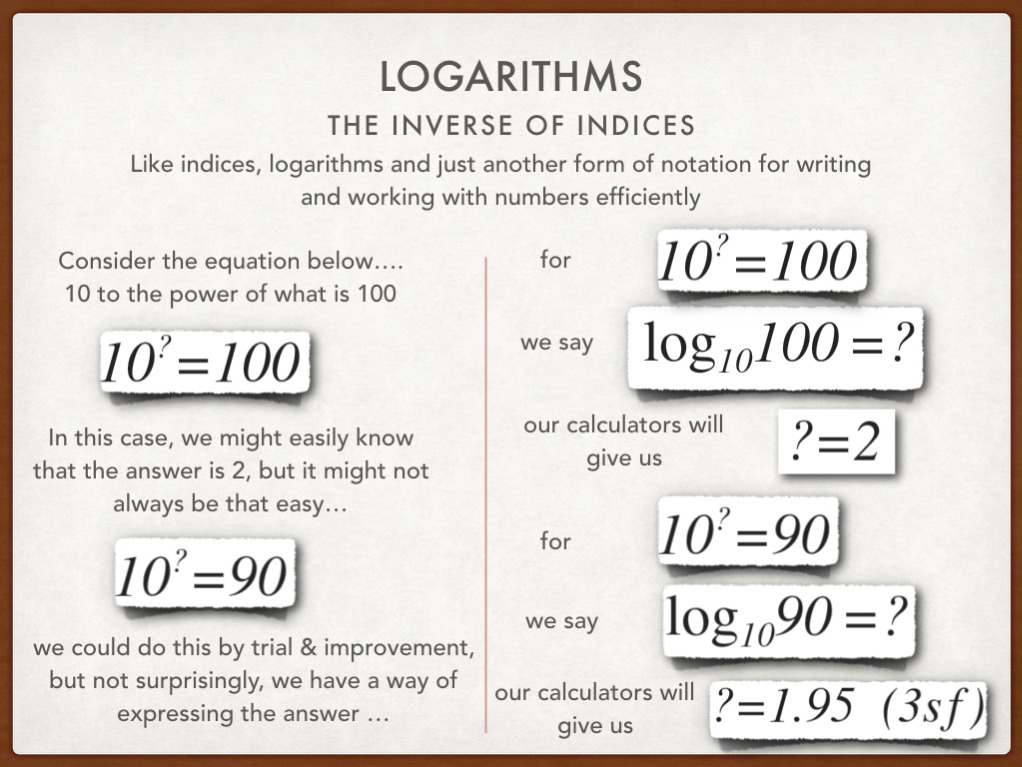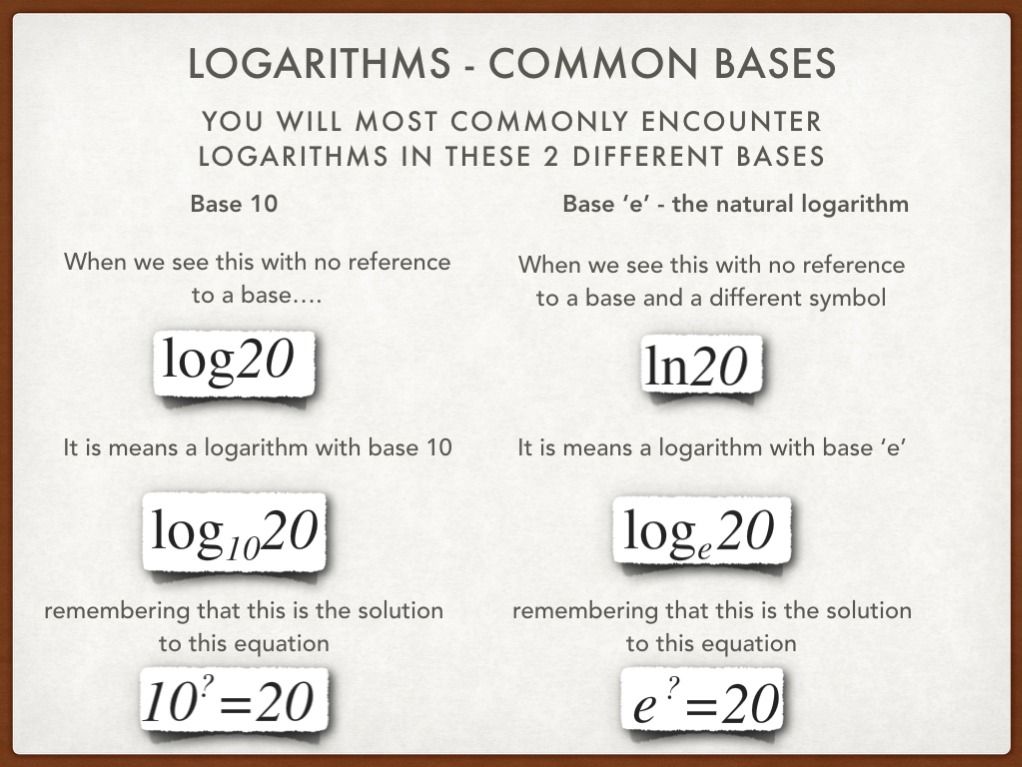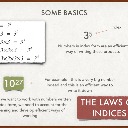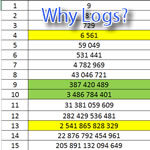SL Indices & Logs
 This sub topic is all about understanding how to express and work with numbers written in index form. As well, we will explore the inverse of indices and the basic concept of logarithms. This all draws on the idea that in mathematics we construct efficient ways to write and work with numbers that facilitate scientific communication and manipulation. This is another layer of of notation and understanding that builds on previous experiences. Doubtless, many of you will be familiar with the laws of indices, but many will be seeing logarithms for the first time. See more details about what you are required to know by clicking on the hidden box icon.
This sub topic is all about understanding how to express and work with numbers written in index form. As well, we will explore the inverse of indices and the basic concept of logarithms. This all draws on the idea that in mathematics we construct efficient ways to write and work with numbers that facilitate scientific communication and manipulation. This is another layer of of notation and understanding that builds on previous experiences. Doubtless, many of you will be familiar with the laws of indices, but many will be seeing logarithms for the first time. See more details about what you are required to know by clicking on the hidden box icon.
Students are required to
- Know and apply the laws of manipulating numbers written in index form, including multiplication, division, brackets and negative indices.
- Understand the notation and the concept of a logarithm as the inverse of an index.
- Solve simple logarithmic equations
Manipulating numbers written in index form is essential for working with algebraic functions beyond the linear. We need to understand these first before we can understand logarithms as the inverse and it is an essential part of the study of calculus.
The rationale for including logarithms is related to the frequency with which log scales might be used to represent information as well as the use of logarithms for solving exponential equations.
Teaching slides
Please find below some slides to help present and teach these ideas to students. You can click on each image to make it fill the screen and then click through them. you might also consider using presentation mode for using these slides.
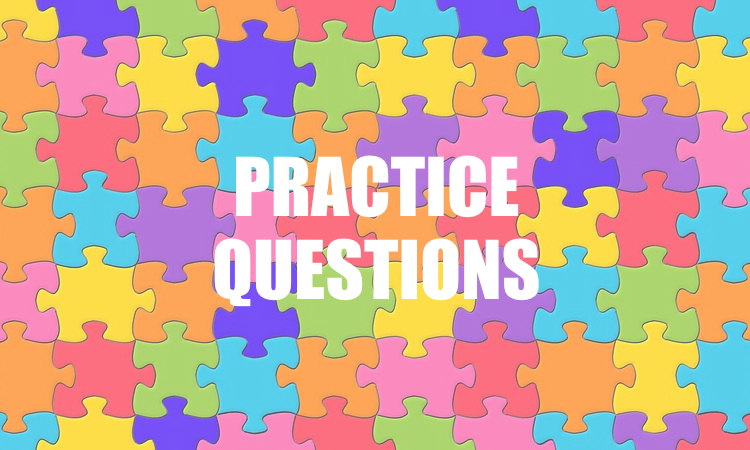 Practice questions
Practice questions
The following are exercises for practising understanding of indices and logs.
This is an online exercise that students should complete on the link given with a piece of paper by their side. You can feedback straight away by clicking 'check'. Exponentials & Logarithms practice The 'Print this page' feature lets you get a printed version of these if you would prefer.
This Review indices and logs exercise can be used for revision and practice ahead of a unit, end of year or mock examination. The solutions can be found here.
IB exam style questions
The following is a link to a page where you can practice IB exam style questions on Logarithms - Exam Style Questions . The links will take you to pages that show the questions that can be printed directly as a page or be downloaded. The same is true for the solutions. If pages become very long then some of these will be shown through hidden boxes
Teaching Activities
Is there a quicker way to solve 984 876 543 210 x 875 622 375 922 without a calculator? Students gain experience of using log tables to do calculations and to plot graphs (for data with a very wide spread). Online quizzes put this knowledge to the test and smartphone apps are introduced that provide IA opportunities, using Decibel & Richter scales..
Log Jam - Thinking about logarithms
Thinking about the relationship between indices and logarithmsThis is a short thinking task to help think about the realtionship between indices and loagarithms and get used to the fundamental idea that...
Unit Planning
Here are some thoughts and ideas about how to pay explicit attention to the ideas at the unit planning core when teaching and planning this topic.

So I have been teaching these ideas at the beginning of the course as part of a unit I am calling 'numbers for describing' that covers ideas related to standard form, indices, logs, percentage error, accuracy and estimation. I feel like these are key 'tools' that play a part in many other parts of the course. We have grouped indices and logs together for some obvious reasons about inverse. The following are some considerations for unit planning then...
Conceptual understanding - This is a good opportunity here to consider Equivalence, relationships, representation - understanding how a logarithms are another way of expressing the exponential relationships. As such they become useful equivalents for solving equations and indeed for representing information using logarithmic scales. Its great to take the opportunity to help students make a note of these key conceptual links.
Contexts - Students are mostly likely to encounter logarithms in the context of needing to solve an exponential equation and the idea of log scales on graphs. There are lots of these to look at and there are some examples in this blog post Statistics telling Stories were I discuss the purpose of and pros and cons of using such scales. These discussions offer a great opportunity for students to enquire and understand the significance of different representation son accurately and usefully representing information. Clearly the context chosen could be looked at from both a local and global perspective. This kind of activity and discussion will draw on many of the learner profile attributes as well.


Calculator - students find it pretty exciting to finally make sense of the 'log' and 'ln' buttons on their calculators and given that there is no use of log laws at SL, this ends up being quite accessible for all students.
 All the while, we have lots of underlying knowledge issues at play. The most obvious one is about the different stories that are told by using the different representations - as shown in the Statistics telling Stories post. There are perfectly legitimate reasons for making such choices, but they do seem to come with consequences or at least a need to know and understand those choices and how to factor them in. Then we get to the notion of the logarithm itself as a notion and the extent to which it is a construct as opposed to a natural idea. This of course leads nicely in to discussion of 'the natural logarithm' this can be tricky, but I have recommended elsewhere on the site that students are introduced to 'e' in the context of compound interest since it gives a great way to explore that idea as well. It can be very powerful to get these lovely links between the ideas and really pay attention to the ideas at the unit planning core. Happy to read and include user suggestions about unit planning considerations here. Thanks.
All the while, we have lots of underlying knowledge issues at play. The most obvious one is about the different stories that are told by using the different representations - as shown in the Statistics telling Stories post. There are perfectly legitimate reasons for making such choices, but they do seem to come with consequences or at least a need to know and understand those choices and how to factor them in. Then we get to the notion of the logarithm itself as a notion and the extent to which it is a construct as opposed to a natural idea. This of course leads nicely in to discussion of 'the natural logarithm' this can be tricky, but I have recommended elsewhere on the site that students are introduced to 'e' in the context of compound interest since it gives a great way to explore that idea as well. It can be very powerful to get these lovely links between the ideas and really pay attention to the ideas at the unit planning core. Happy to read and include user suggestions about unit planning considerations here. Thanks.
Useful Links
This section will offer relevant links that teachers may be interested in. In each case these links will have some commentary from the site authors to suggest how it might be of use.

